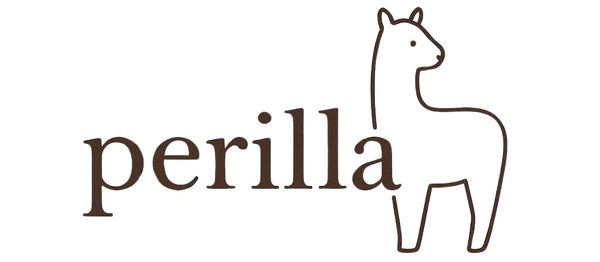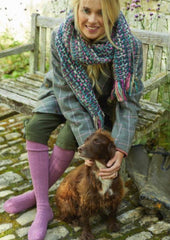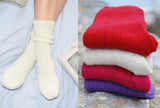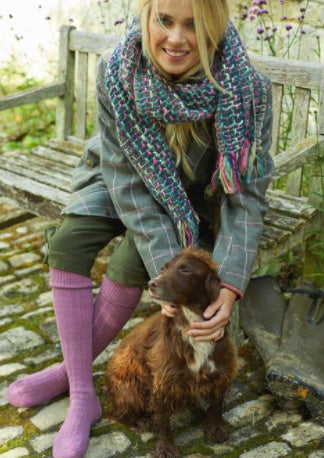
The warmest socks for cold feet - discover the difference of alpaca
When you’re thinking about the warmest socks for cold feet you probably already realise that socks made of synthetic yarn won’t do the job properly and of course you’d be right.
So then there’s another question; cotton vs merino wool vs alpaca. Discard cotton, because it won’t keep your feet toasty warm, and consider merino wool – which is easy to find – vs alpaca.
Then choose alpaca socks because although merino wool and alpaca fibres have many similarities (both are great at keeping smell under control, both are quite insulating and heat retaining) alpaca fibres are semi hollow, allowing warm air to be trapped inside and providing extra warmth over sheep’s wool.
Sheep’s wool will absorb up to 50% of its weight in moisture, but once it saturates it allows sweat to sit next to the skin. Alpaca, because of its hollow fibre, traps more warmth and naturally pushes moisture away, never allowing it to sit on the skin.
Alpaca socks are without question the warmest socks for cold feet - just try them and you'll see. So which socks do you need?
At Night
We haven’t found anything that keeps our feet warmer at night than a luxurious pair of alpaca bed socks. These are made from 90% baby alpaca and 10% nylon. There is, quite simply, nothing more cosy.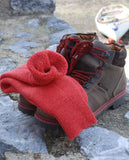
During the day
Because of the benefits of alpaca fibre, if you suffer from cold feet generally, poor circulation, or you just want a gorgeously warm pair of socks to wear inside your shoes for work or every day, or country socks to wear with your wellies in the garden or out for walks, or thermal socks for inside your hiking boots, alpaca is the king of fibres for warmth, strength, insulation, moisture wicking and comfort. Once you’ve tried them you’ll never want to wear anything else. We promise, and we know these things.
Other benefits of alpaca
Alpaca is less itchy than sheeps wool because the fibre is smoother
Alpaca is easy to wash and it won’t shrink - as long as you use a wool cycle.....
Alpaca, being stronger than sheeps wool (it is second only in strength to silk) and having hollow fibres will dry faster in damp conditions
Alpaca is considered hypoallergenic because it doesn’t contain the lanolin traditionally found in sheep’s wool, which can be an irritant. This makes it perfect for those with sensitive skin and babies as well.
